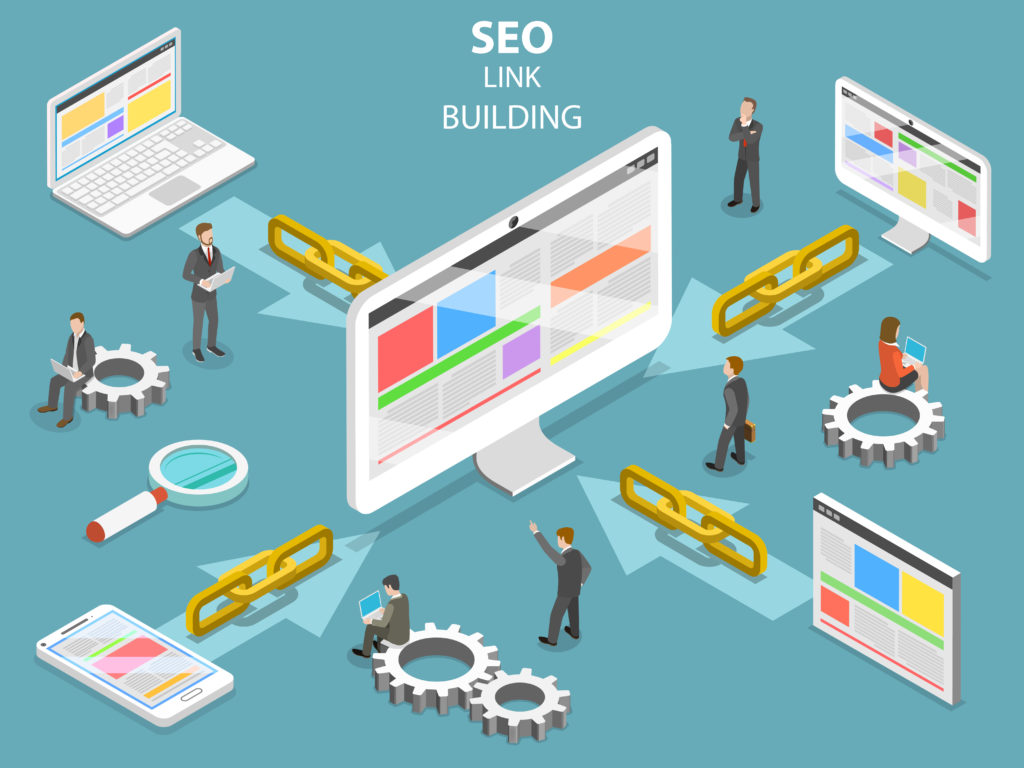Link Building 101: Everything You Need to Know to Boost Your Content Rankings
One of the most important elements of optimizing your website for SEO is link building. When another website links to the content on your site through a one-way hyperlink, Google’s algorithm sees this as a vote of confidence that your site contains relevant and authoritative information on a topic. Your site is then seen as a trusted online resource and therefore, gets a boost to appear higher in search results. Each good backlink to your content gives you another boost and can improve your site’s traffic and revenues.
How Do I Get Started Building Links?
The crux of a good link building strategy is creating high-quality digital content and forming relationships with relevant websites that can backlink to your content. Your business should create a cohesive content marketing strategy that places various types of media across your channels to engage with your audience. Whether the content is blogs, videos, or whitepapers, you will need to build up your online presence before moving on to your link building strategy. Some content strategies for building quality links are:
- Whitepapers
- Blogs
- Case Studies
- Guides
- Interviews
- Infographics
- Local PR Campaigns
- Videos

How Do I Build Links?
Once you’ve placed some content online, you can begin working on link building. There are four main ways to build links: Add, Ask, Buy, and Earn.
Adding Links
Rather than adding your website on every business directory, stick to well-known and credible sites. Stay away from link farms which the whole purpose of those websites is to publish links of websites. Posting content as a subject matter expert sharing a link to your content can also be a good way to jump start your link building. You can even work with other, non-competitive, blogs and websites who may want to publish your expert content.
Certain types of websites will allow you to manually add a link to your content. Business directories, social profiles, blogs, and other types of forums are an easy opportunity to get links. However, you should use this tactic conservatively. While these links can be beneficial, having too many links on one domain could cause your links to be flagged as spam.
Asking For Links
A great way to build up high-value links is through outreach to websites and bloggers who may be interested in your content. You’ll need to offer them a compelling reason to link to you, and there are several ways to make the link mutually beneficial.
One tactic to try is guest posting. Reach out to a website or blogger in your industry and offer to write a guest blog on their site. This helps them populate their own site with useful content, and you can include links back to your own site in the copy. You can also offer to create a testimonial about their product or service in exchange for a link to your content.
Additionally, you can reach out to bloggers and websites who have mentioned your brand and ask them to make the mention a clickable link. If a site is using your original image, you can ask for credit in the form of a link. You can also comb pages on websites with content relevant to your business and check for dead or broken links, then offer a link to your content as an alternative.
Most websites and bloggers will want to know that you are willing to share their content if they agree to using your link. Be prepared to offer shares on your social media accounts or inclusion in email marketing and newsletters. Overusing outreach or offering money or goods in exchange for links can violate Google’s search engine guidelines, so be cautious with what you agree to do.
Buying Links
Buying links to your content is an option but not recommended. In fact, most SEO experts would advise against buying links. Most paid links are low-quality links that have very little, if any, impact on your page rankings. Having too many “bad” links to your page can harm your page rankings and push your site further down in the search results. Buying backlinks is also against Google’s Webmaster Guidelines. That means you could face a penalty if you get caught. A paid backlink penalty could severely hurt your search engine rankings. Buying links is easy, but the benefits do not outweigh the cons. Avoid buying links for your SEO strategy.
Earning Links
You can earn links when a website or blogger links to you without an ask or exchange. This can only happen if the website comes across your content organically. Your content needs to be of great quality with high visibility, and it doesn’t hurt to invest in promoting the content with paid placement to expand its reach. Earned links are the most valuable but require a significant effort.

What Is a Good Link?
Search engine determinations of a good link versus a bad link can seem arbitrary. However, there are some generally accepted strategies to keep in mind when building quality backlinks.
First, page authority can greatly impact the quality of your link. Authority is scored on a scale of 0 to 99, known as Domain Authority. An older, more established website with moderate to high monthly traffic is seen by search engines as stronger than newer sites, and therefore has a higher domain authority. However, links to newer pages may increase in value over time as the page accumulates high-quality links.
In addition to page authority, the relevance of the site linking to your content is important. For example, if your business is a coffee company, you’ll get more benefit from links from other coffee or food-related sites. A link from a blog on construction would have no relevance to your content.
Finally, the placement of your link on the site and the destination of the backlink can affect the value of the link. More prominently placed links, like those contained within the content rather than a sidebar or footer, will have a higher value. When your link is placed, be sure to have it direct back to a specific and relevant page you’d like to boost in rankings.
It’s also important to keep in mind that the words that are hyperlinked, anchor text, need to be relevant to the page you are directing traffic to via a backlink. If you’re backlinking to your webpage for your coffee shop’s signature coffee blends, you want the words to be relevant to coffee or other coffee shop food and drink essentials. The backlink anchor text is the anchor text used by other websites linking to your website. The anchor text of these backlinks help search engines determine the most relevant keywords a web page should rank for. Make sure the anchor text matches what you want that page to be associated with.
What Tools Are Available to Help Me Build Links?
Taking on a link building strategy can seem overwhelming, but there are many tools available to help you build the links you need. Backlink research tools can examine a competitor’s site for links, giving you a list of targets for outreach. SEO content research tools can use keywords and phrases to churn out a list of content topics and potential websites that could be a good fit for your site.
Check out sites like SEMRush and Moz. But fair warning – these sites come with a hefty subscription price. So if you aren’t sure what you are trying to do or what you are looking for – it might be best to seek out a white label link builder who already has a subscription to these SEO tools.
Ready to See Success With Your Link Building?
If you’re in need of professional link building services, Conversion Pipeline is a click away. Contact us today to get started.
- Google Merchant Images In Local Business Ads - July 10, 2023
- Is Your Smart Phone Listening to You? - January 30, 2023
- How To Sell Your Digital Marketing Agency - January 11, 2023
